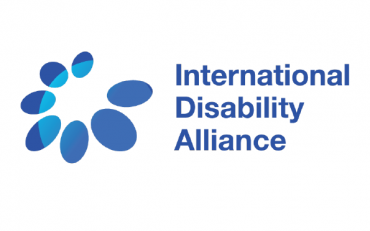World AIDS Day 2010, ‘Universal Access and Human Rights’:
Include persons with disabilities in all efforts to address HIV
December 1st is World AIDS Day. World AIDS Day aims to raise awareness and end discrimination in the context of HIV. The theme this year is 'Universal Access and Human Rights'. Today, about ten million people who need treatment are not getting it. Efforts to ensure universal access to treatment must address barriers to persons with disabilities to ensure truly universal access.
Recent UNAIDS numbers indicate that there are now approximately 33.3 million people living with HIV, including 2.5 million children. In 2009 alone, around 2.6 million people became newly infected with the virus, and an estimated 1.8 million people died from AIDS. About thirty million people have now died of AIDS. This represents a tragic loss of human life and human potential for the world. Despite efforts, universal access to treatment has not yet been achieved. Local discrimination and insufficient global action have resulted in the fact that, today, about ten million people in need of treatment are not getting it. As stressed by Human Rights Council resolution 12/27, States and relevant partners must provide persons with disabilities with the same range, quality and standard of free or affordable health care and programmes as provided to other people.
Persons with disabilities around the world regularly experience violations of the rights to information, education, accessibility, sexual and reproductive health, health (including informed consent), legal capacity, and physical integrity. Not only does this create a situation of heightened risk for persons with disabilities to become HIV positive, but it means that persons with disabilities living with HIV face additional barriers in enjoying their human rights. Health information needs to be available in accessible formats and health services need to be accessible. People must not be denied treatment or care on the basis of disability. Universal design needs to be implemented in health settings. The Convention on the Rights of Persons with Disabilities (the CRPD) underlines the right to equality and requires non-discrimination. Persons with disabilities are entitled to equal enjoyment of their rights all throughout the continuum of HIV – from prevention, to treatment, care and support, and to maintain their autonomy while seeking services, so that diagnosis and treatment for HIV are not done without the free and informed consent of the person concerned.
The global community needs to ensure that persons with disabilities living with HIV have access to treatment, keeping in mind the obligation of informed consent, and the prohibition to deny treatment on the basis of disability, that are enshrined in article 25 of the CRPD. Persons with disabilities living with HIV must have equal access to health services that are available to everyone, and they also must have access to health services needed specifically because of their disability, subject to free and informed consent of the person concerned. The global community needs to step up efforts to ensure universal access to treatment for HIV and to involve persons with disabilities and their representative organizations in this effort. International cooperation efforts to this end must be inclusive of persons with disabilities in line with article 32 of the CRPD.
For more information:
UNAIDS: www.unaids.org
2010 UNAIDS Global Report of (PDF): http://www.unaids.org/globalreport/Global_report.htm
UN Enable (the main UN portal regarding disability): www.un.org/disabilities
International Disability Alliance: www.internationaldisabilityalliance.org
Contact: Ellen Walker at ewalker [at] ida-secretariat.org
Archive: http://test-ida2.pantheonsite.io/sites/default/files/migrated/IDA%20Worl...

